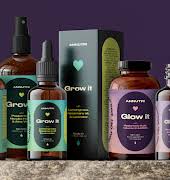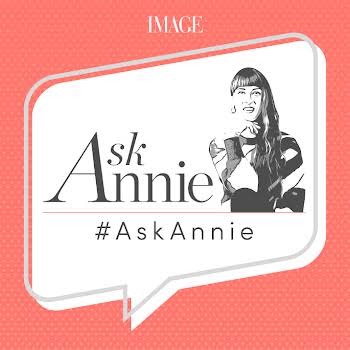By Rhona Mcauliffe
28th Mar 2018
28th Mar 2018
Our resident agony aunt, Rhona McAuliffe, advises a reader who is worried her friend might have a drinking problem
Dear Rhona,
I think one of my closest friends might be an alcoholic but I don’t know how to tell her. I’ve known her since secondary school, about fifteen years now, and she’s always had this problem. She doesn’t drink that much and might not drink for three or four weeks but when we do go out she’s visibly drunk by her second drink, slurring and essentially checked out, unable to keep a coherent conversation going.
She drinks on through the night and it always ends messily. She might have lost her bag or not remembered getting home or had an argument with a stranger or disappeared half way through the night and no-one knows where she’s gone.
I would never go out with her alone, partly because I know I’m going to end up babysitting her at some point but mainly because far too early in the night the lights are on but literally no-one is home.
Even though she’s up for all the craic, there is no craic in her at all. I also think her drinking might be the reason she’s never met anyone, when she’s drunk she’s just too much to take on. Apart from drink she’s a really great girl, bright, funny, together, interesting job and she’s a big fitness bunny so consciously doesn’t drink for ‘detox’ periods and is super healthy.
I wonder if it’s also a possibility that she has an allergy to drink? It’s got to the point where she’s being excluded from weekends away and girls’ holidays because no-one wants to deal with her on a night out. Having picked up the pieces for years I’m starting to feel like a bad friend for not confronting the elephant in the room. Where do I start?
Already Dreading It, Navan.
Firstly, we all need friends like you. As we plunge further into the digital abyss it’s so easy to depersonalise friendships that aren’t working, or are a drag on the group, and distance ourselves from the problem.
While it’s understandable that your friend might be excluded from weekends away and holidays, by this tack she will feel rejected, isolated and be left questioning what exactly went wrong. By seeking help on how to talk to her about her hazardous drinking, you are braver and more committed than most. As this is a particularly sensitive issue, and one that I’m sure we’ve all been touched by at some point in our lives, I have consulted with sober friends in recovery, researched a tonne of relevant material and appealed to an esteemed professional to share his recommendations, in an effort to kit you out with the ultimate action plan.
When not drinking, by most social standards, your friend is killing it. She might feel like all the crucial pieces of Winning at Life are in place – job, car, flat, friends – and that she doesn’t have a problem. She might vow never to drink wine again or confess that Margaritas are her downfall; blame a hazy night’s end on an empty stomach or soothe herself by thinking that she matched her friends drink for drink.
By not acknowledging her drunk behaviour to date – through kindness or fear – you have unknowingly protected her from a fairly harsh reality. This means, she is likely to be in denial once you do broach the subject.
You wonder if she might have an ‘allergy’ to alcohol. That’s always a possibility though allergic reactions to alcohol are relatively rare and are characterised by difficulty breathing, low heart rate, hives, a rashy, red face, vomiting and/or diarrhea. What’s more common is an alcohol intolerance, with sufferers not producing enough of the liver enzyme Aldehyde Deyhdrogenase (ALDH), which breaks down alcohol into acetic acid (vinegar), which is then processed by the body. With low ALDH, the alcohol remains as a toxin in the bloodstream, triggering the immune system and causing allergic-like reactions, with variations of the above symptoms.
However, this may not be an alcohol intolerance but a reaction to the many auxiliary ingredients – wheat, yeast, chemicals, preservatives etc. Either an allergy or intolerance may or may not contribute to checked-out inebriation or a poisonous hangover but they would indicate that a person should definitely not be drinking. If some sort of adverse chemical reaction or medical condition is responsible for your friend’s rapid drunkenness – and, remember there’s a possibility that she’s also pre- loading at home – the question is, why does she continue to drink?
In Ireland we are all becoming more educated on alcohol addiction and what that might look like. We know that an active alcoholic doesn’t necessarily drink every day, hide their stash in the toilet cistern or black out on a park bench a few times a week; we know that a huge percentage of people with alcohol use disorder are ‘high functioning’: they have families, successful careers and are often the super achievers in their groups. They live in constant threat of exposure and being branded an ‘alcoholic.’ The term is so heavily stigmatised, with many not identifying as being ‘addicted’ to alcohol, that it is often attributed to delayed treatment for harmful drinking. It’s also important to note that no matter how ‘functional’ your relationship with alcohol might be, unless you seek help things will only get worst, never better.
A wise friend of mine reduced the issue to one simple sentence: if alcohol is causing you a problem, then you have a problem. And that is certainly the case for your friend. Before you sit down with her, prepare yourself for her abject denial. It would be normal for her not to want to face the problem straight away; she may never change her drinking habits or it may take a long time before she feels ready. It’s her decision and much as you can be there to support her, she is the only person who can activate change.
The best time to bring it up is the day after a big night out. Either arrange for her to stay with you or invite her to meet somewhere private for coffee. Although she hasn’t acknowledged her drinking she will likely be anxious and remorseful, piecing together shards of the night. Be patient, sensitive and empathetic in your approach. If this does not come naturally to you, consider enlisting the next best person for the job or ideally a mutual friend in recovery. Only comment on what you’ve witnessed and how it makes you feel.
For example, you feel panicked and worried when she goes missing; you’re scared about what might happen when she’s drunk and who might take advantage of her in the wrong circumstance. You could mention that you have noticed that she has a personality change of sorts when she drinks and is often unable to talk coherently after only a couple of drinks. The objective here is not to judge, shame, patronise or lecture her but to come to her in genuine concern, with a view to finding a solution.
Rolande Anderson – an experienced, Dublin-based addiction counsellor and author of Living With A Problem Drinker: Your Survival Guide – had this to say on reading your mail: “The letter is typical of numerous ones I get from close family members, friends and even work colleagues. The dilemma is of course the fear of offending or losing a friend, against the hope of helping someone who is in ‘denial’. Timing around expressing concern, together with presenting the facts (not exaggerated or embellished), as to why the writer is worried are crucial as well as pre-empting everything with ‘I care deeply for you and will be there for you’.
The advice would be never to diagnose (such as using the term ‘alcoholic’) but suggesting that the individual should seek a professional assessment from a counsellor, trained in this area or a treatment centre. Asking a GP would be a very good first step.” If your friend is receptive from the off, make sure you have a list of treatment options, therapists and local recovery meetings to hand. The Drug Alcohol Helpline on 1800 459 459, is a good first step for advice on local treatment centres and the best options available relevant to her situation. Call them first so you’re armed with all the relevant intel.
You can also attend an AA ‘open meeting’ with her, which are meetings for anyone interested in exploring their relationship with alcohol. There are daily meets in Navan or she can travel elsewhere if she wants to fly below the radar. Full and updated details of AA times and places are here.
The Alcohol Treatment Unit on Baggot Street in Dublin is also highly recommended for one-to- one counselling, with contact details here.
It’s as likely that she’ll shut you down and maybe pledge to stop drinking herself, mocking your misplaced hysteria and over-the- top treatment programmes. The fact is, if she can’t stay stopped, she has a problem. She may retreat from you for a while in which case checking in with her every few weeks will let her know that you’re there if she wants to talk. She needs to know that she can still come to you even if she doesn’t address her problem drinking. That doesn’t mean you won’t highlight incidents as they happen, however, and potentially refuse to drink with her.
Bryony Gordon, the Telegraph columnist, author and mental health advocate, wrote a great piece on starting her recovery last summer. She says: “I am endlessly grateful for my friend’s intervention back in July. It is still early days…But what I will say, in case there is anyone reading this who thinks they have a problem, is that back when I heard the word addict, and the term alcohol use disorder, I thought it was the end. In fact, it was just the beginning.”
Confronting this prickly maze of an issue with your friend is a courageous act of love. It’s a commitment to going the distance with her and maybe, just maybe, saving her life.
Rhona McAuliffe might not be a trained therapist but she does have very big ears, quite a long nose and a gaping heart. If you have a problem that won’t just go away, she’d love to hear it. Write to Rhona at aunty.rhoner@gmail.com





















